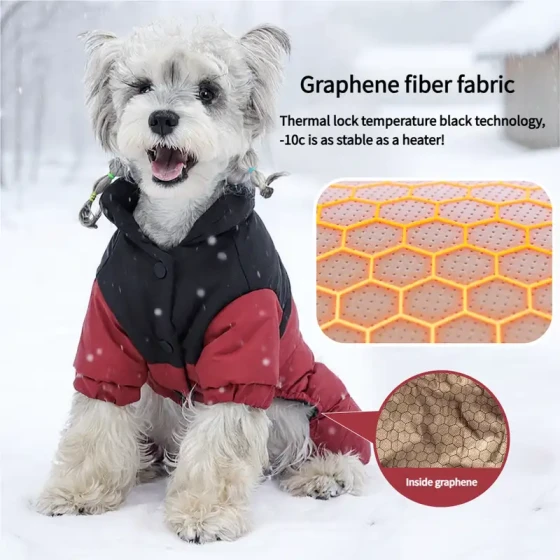Are Dogs Carnivores or Omnivores Mainly Eating Meat

Regarding whether pet dogs and cats need to be fed more meat, or even raw meat, numerous pet nutrition experts and veterinarians have been debating endlessly. This is an ongoing topic about how to better provide pets with nutritionally balanced food. This issue also directly affects the application and proper ratio technology of meat in pet food formulations.
Pet dogs being classified as omnivores mainly eating meat, rather than pure carnivores, is a wrong and even absurd viewpoint. In familiar written records, Mr. Webster consistently classified dogs as "carnivores," which aligns with the theory that dogs' ancestors are wolves. So why today do we define dogs as omnivores mainly eating meat? I think this is perhaps because some pet food companies in the U.S. are striving to protect their own interests by promoting and defining dogs as "omnivores," even trying to turn "carnivorous" dogs into "corn" dogs. In practical feeding, we have sufficient evidence proving that omnivorous dogs eating excessive corn are less healthy than carnivorous dogs.
Encouraging dogs and cats to return to their ancient past to eat meat, even raw meat, is not a new pet feeding philosophy born today. The concept of letting pet companions consume meat, even raw meat, can be traced back a long time ago. Unfortunately, during the rapid development of the pet food economy and trade in the U.S. over past decades, most pet food manufacturers chose industrial-scale mass production. For the convenience of transportation and storage safety, they endeavored to shape pet dogs into omnivores. This consideration mainly satisfies these manufacturers’ own interests and customer demands. We oppose this viewpoint and stance, firmly believing that choosing meat for pet dogs offers superior nutritional value. At the same time, we accept rigorous comparative tests of these two feeding methods. Over time, reality will prove the correctness of our viewpoint. Therefore, we advocate feeding dogs more meat, even raw meat.
The theoretical basis for insisting on feeding pet dogs "meat" and "raw meat" instead of the "omnivore" theory is very simple: the manufacturing process of "omnivorous" pet food destroys enzyme activity and amino acid value. Meat, especially raw meat, contains abundant natural digestive enzymes and amino acids, and only in their natural state is their nutritional value perfect. In some pet food manufacturing processes, the vital amino acids and enzymes are completely destroyed.
Some pet foods require heating at 110℃, and some, such as pet canned cooked products, require temperatures over 212℃. Pets eating such highly processed foods suffer greatly in nutritional health. Long term, this leads to obvious symptoms like dry skin, itchy skin, dull coats, lethargy, and more subtle adverse signs. We know enzymes are indispensable biological catalysts physiologically for pets, improving nutrient value and promoting absorption. This demands our favorite pets have sufficient ability to protect enzyme activity; only in this way can longevity, health care, and happiness be achieved. Excessive intake of pet food with destroyed enzyme activity will not fulfill this hope. Our concepts of "carnivorous" and "raw meat" feeding have repeatedly proven correct as more animals become healthier, stronger, more experienced, and live longer lives.
According to our observations, providing pets with pure or even raw meat compared to omnivorous diets greatly affects pet feces. The biological value of protein in pure and raw meat leads to a substantial reduction in feces quantity and frequency. Most commercial pet foods on the U.S. market currently contain digestive aids causing dogs and cats to overeat and defecate multiple times daily. Feeding more meat, even raw meat, generally results in pets defecating once a day or every other day. In addition, this digestion rate greatly reduces feces odor, a healthier, more natural occurrence, like in the wild. We can perform a simple test: placing feces and digested food in water will cause them to "float like boats."
At the same time, meat, even raw meat diets have the unique advantage of not producing tartar on teeth. One main reason is enzyme activity plays a key role. Meat lodged between teeth or along the gum line self-digests due to natural digestive enzymes not destroyed. On the other hand, cooked food particles can remain along the gum line, constantly causing more bacterial growth, resulting in tartar and bad breath. Excessive tartar can lead to more periodontal disease.
Although in reality, we see many pets fed omnivorous commercial foods, i.e., "omnivorous" or more "corn," remain very healthy, this does not indicate omnivorous feeding is the best or healthiest. Some dogs, especially when young, have an amazing ability to digest anything. However, as they age, degeneration often occurs usually after 4-5 years old. This is a long waiting process. From European reports, we often learn that large breeds dogs, such as Great Danes, Rottweilers, and Mastiffs live 15 years or longer. Such longevity is almost unheard of in the U.S. Don’t you want your favorite furry companion to live as long as these European lifelong pets?
For a long time, worldwide pet veterinarians have continuously emphasized that feeding meat and even raw meat to pets long-term is very dangerous and unsafe. However, at the same time, we must face the unfortunate reality that many veterinarians cannot provide truly adequate nutrition data and knowledge for dogs and cats. They rarely know that in meat or raw meat-based pet food feeding, we have 30 years of successful feeding experience with zoological park animals, circus animals, wildlife park animals, and pet dogs and cats.
All this sufficiently proves that feeding more pure meat, even raw meat, surpasses omnivorous feeding in health benefits and advantages for pets.


-560x560.webp)